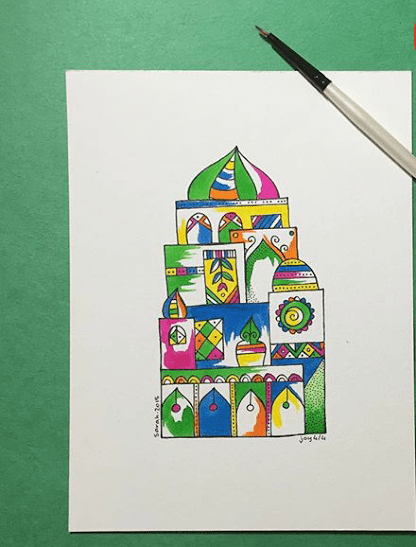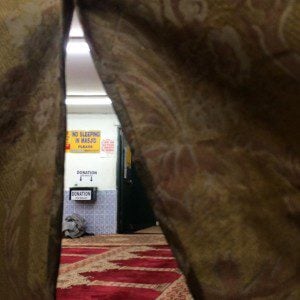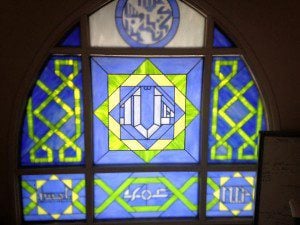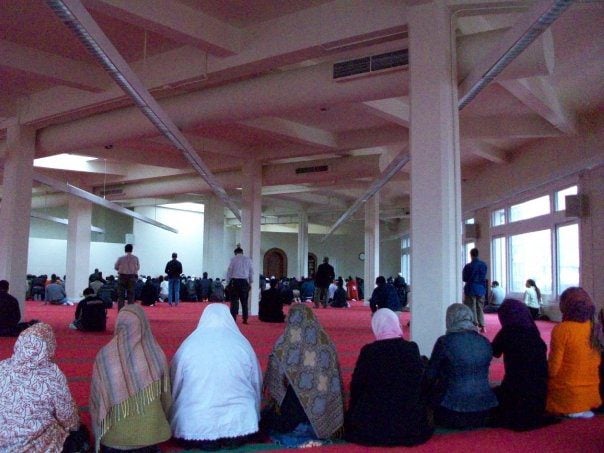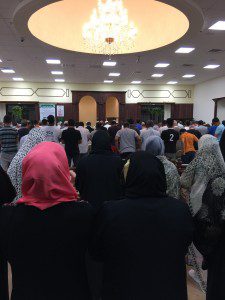
This is Day 6 of Hindtrospectives’ #MyMosqueMyStory series for Ramadan 2015
By Ala Ahmad
The imam stands in front of our congregation and begins his khatirah, the mid-Taraweeh short lecture. He begins with a familiar introduction, and then, he continues, in Arabic. While I speak, read, and write Arabic fluently, I have a hard time keeping up. No matter how hard I focus, I cannot make out the lesson or overall topic of the khatira, especially with the bustle of people as they step out for the short Taraweeh intermission. The imam pauses after 5 minutes and allows a brother with a thick accent to translate for a minute before he continues in Arabic. I sigh in frustration as I am reminded that my needs as an English speaker are secondary.
I have been a part of this mosque community since I was a little girl attending the Islamic school. I have seen our mosque’s transformation through 3 different spaces and many imams. Though I moved away for my graduate program, I ended up getting married and moving into an apartment only 2 minutes away from my mosque. I am an active member who regularly attends Friday evening prayers and all community dinners/iftars. Yet for the first time, I felt alienated because of language.
Our mosque is very blessed in that we pray in a large open space with no barriers between
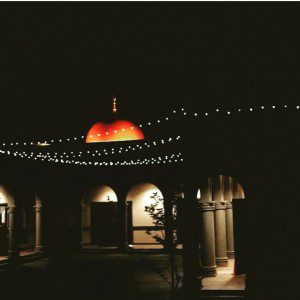
men and women. Women who have younger children or prefer a barrier have a separate room that they may pray in. Our mosque is cool, clean, and open. People of all backgrounds attend the mosque making it one of the most diverse congregations in our area. Our mosque has also prioritized involving female members including having them as part of the board. The women, in fact, have a better entrance than the men as it is conveniently located next to the parking lot. Men regularly use this entrance also, with no issues.
Despite all the good qualities our mosque possesses, I am frustrated by the cultural gap manifested in the language gap. This imam is beloved by many people who attend our masjid who are recent immigrants from the Middle East. Meanwhile our new generation of Muslim Americans along with Muslims from South Asia, Africa, and other non- Arabic speaking regions are left to grapple with the language gap. We don’t get the clever jokes or the funny stories the imam includes in his khatira because they do not translate for us. I cannot deny that this imam is knowledgeable and has an amazing voice that makes praying Taraweeh enjoyable. However, I feel that I am missing out because I cannot enjoy his knowledge like others do.
When I have complained about the language barriers to those in charge, including my father, I am usually ignored or informed that the lessons are translated. The translation is typically only 10% of the overall khatirah and I find the translations to be unsatisfactory.
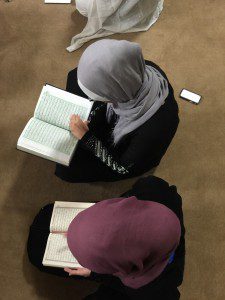
So I have decided to seek my Islamic knowledge elsewhere and I have started a small female only discussion group consisting of the younger members of the congregation where we discuss and debate Islamic topics. I am also using the break in between Taraweeh to catch up on my Quran reading for that day.
While my mosque experience is still not perfect, I refuse to move on to another community. I have outlasted several imams before this one. I am still trying to adapt and find what works for me, but I will not give up my mosque and community.
Ala Ahmad is a Palestinian-American immigrant who lives in the Dallas-Fort Worth area of Texas. A human rights activist, Ala helps investigate fair housing and fair employment complaints. You can follow her on Twitter @ala_ahmad.



